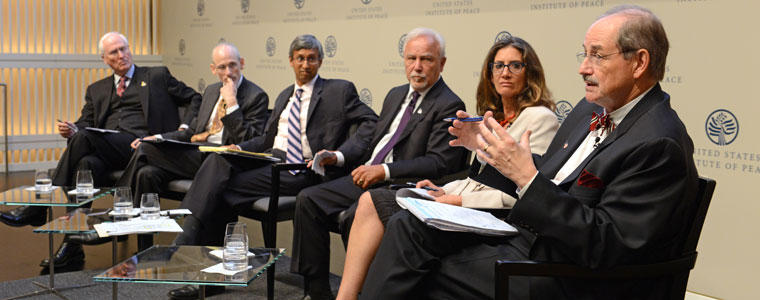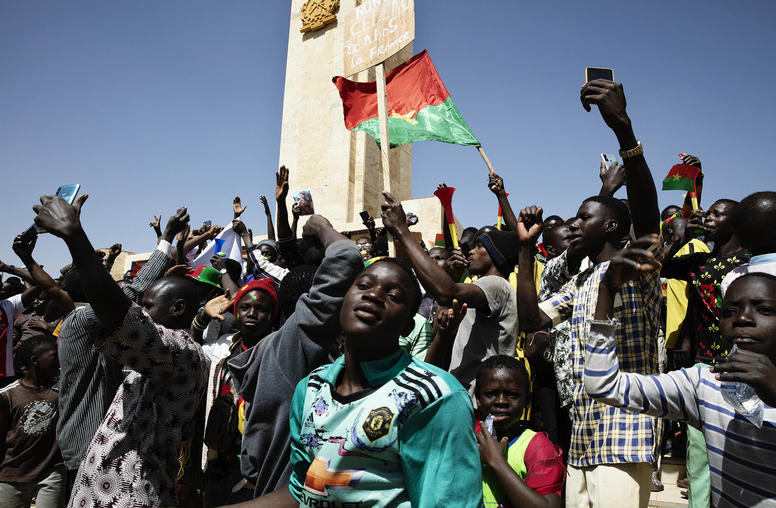Water Security and Conflict Prevention Summit
Read the Event CoverageOn September 10, 2013, U.S. Institute of Peace (USIP), the Association of the United States Army (AUSA), and the U.S. Water Partnership (USWP) hosted a summit on the growing concerns in water security and the risks for increased conflict.

Water is an undeniable, un-substitutable, and powerful factor in everyone’s life, from sustaining individual lives to defining both economic and social policies and practices. As populations and demand expand while supplies decline, access to water will become increasingly difficult, raising the prospects for conflict over this precious resource. By 2025, experts estimated that 1.8 billion people will be living in countries or regions of absolute water scarcity. In addition, the 2012 Intelligence Community Global Water Security Assessment underscores that countries strategically important to the United States will face significant water challenges over the next decade. As an example, the Indus Basin alone is home to approximately 300 million people who depend on scarce water resources in a region already subject to weak institutions that are unable to effectively manage tensions.
Co-hosted by the U.S. Institute of Peace (USIP), the Association of the United States Army (AUSA), and the U.S. Water Partnership (USWP), this summit brought attention to the growing concerns in water security and the risks for increased conflict, and will began the process to seek conflict-sensitive and preventive solutions that are of strategic and economic interest to all parties involved. In addition to approximately 300 senior-level water security and management leaders from the private sector, civil society, academia, military, and government communities, speakers included Chief and Commanding General of the U.S. Army Reserve LTG Jeffrey Talley, Executive Vice President of the World Resources Institute Dr. Manish Bapna, Coca-Cola’s Vice President of Environment and Water Resources Mr. Jeff Seabright and many others listed in the agenda.
Notice: This event has ended, please find resources, audio and video appended.
Resources
- A May 2013 USIP Peaceworks report by researchers Daanish Mustafa, Majed Akhter and Natalie Nasralla on water security-related aspects of domestic discord in Pakistan
- A February 2013 USIP Special Report by Frederick S. Tipson on "Natural Disasters as Threats to Peace"
- A 2012 USIP Peace Brief by Amanda Mayoral on "Climate Change as a Conflict Multiplier"
- A 2010 USIP Peace Brief by Joel Whitaker and Anand Varghese on "The Tigris-Euphrates River Basin: A Science Diplomacy Opportunity"
- A news feature on Pakistan's water security problems from USIP's "2013 Sleeper Risks" series
- Association of the United States Army
- U.S. Water Partnership
- Speaker Biographies



